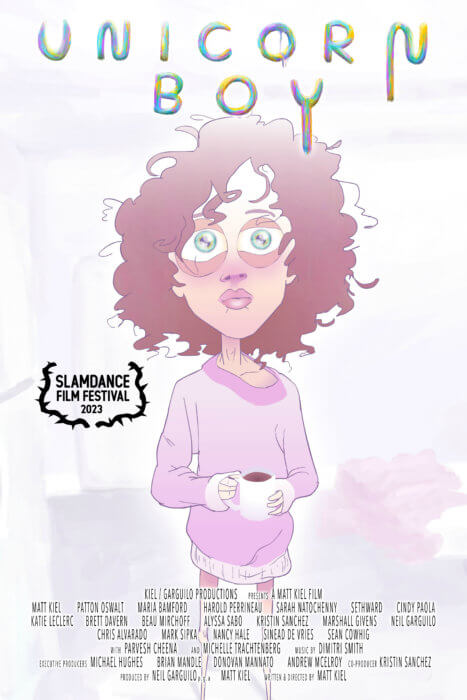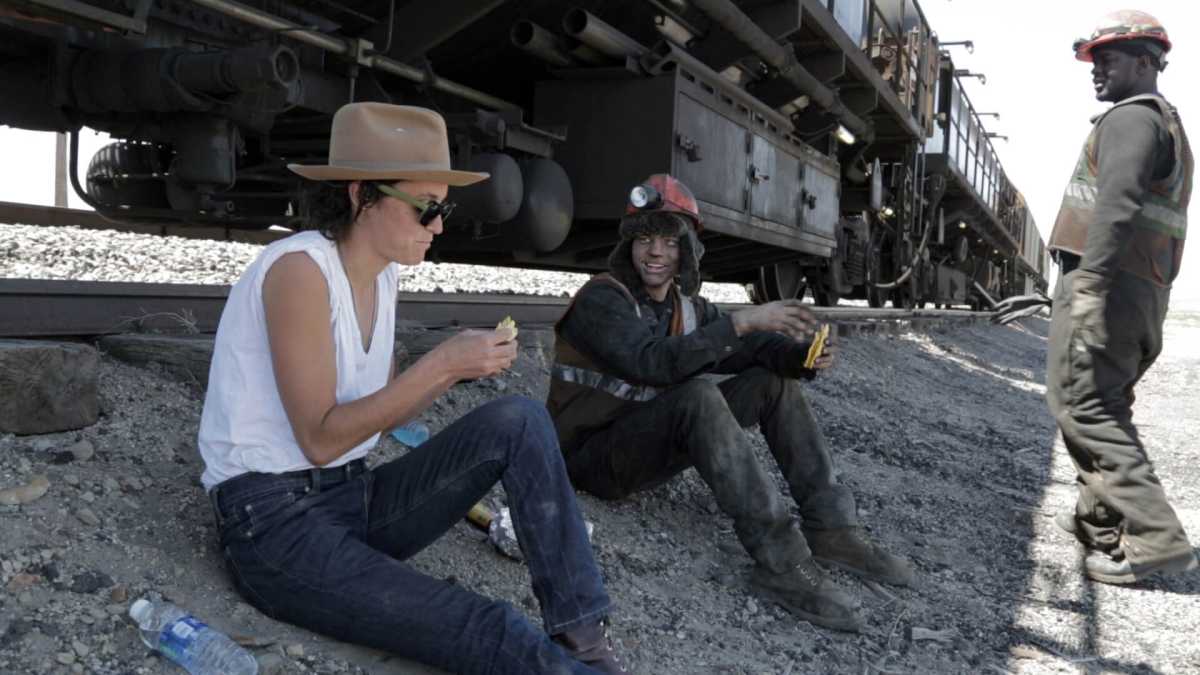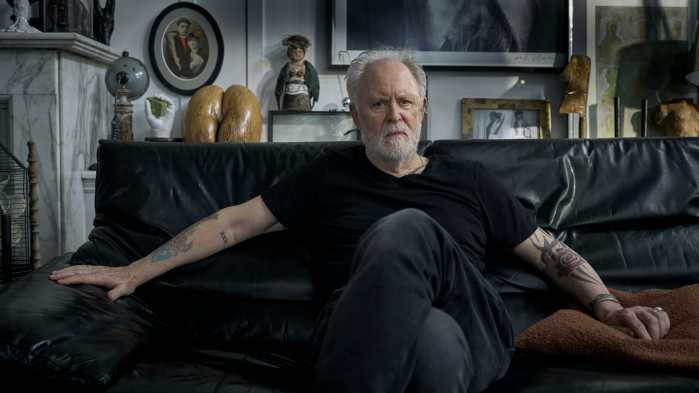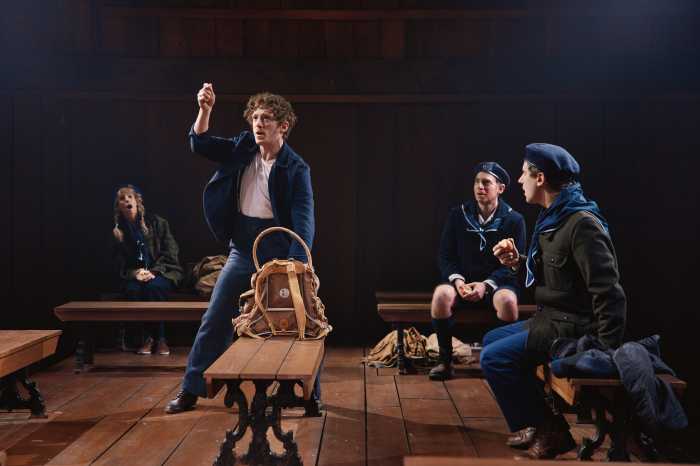Although the Slamdance and Sundance Film Festivals take place simultaneously in Park City, Utah, the differences in their ethos are reflected by their names: a mosh pit versus a day on the beach.
Starting in the ‘90s, Sundance became a home for would-be Oscar bait in search for a distributor. The selections at Slamdance are far riskier and more marginal. Judging from the past two years’ lineups, you might see a horror film directed by a teenager with her friends, or a high school teacher’s no-budget drama starring his students.
Opening with Moby’s documentary about vegan musicians and ending with “Free LSD,” inspired by the punk band OFF!, the 2023 Slamdance lineup encompasses a section of films about disability and programs of experimental and animated shorts, alongside more conventional features and non-narrative work. In the grip of COVID two years ago, it offered a pass to stream the entire contents of the festival for only 15 bucks. That offer has been modified, but now one has virtual access to it for a $7.99/month subscription to their streaming channel. I previewed this year’s LGBTQ feature entries; many shorts are also queer-themed.

Eileen Muza, the subject of Emily Kaye Allen’s documentary “Cisco Kid,” has the independence and physical strength of a classic Western hero. Allen tracks their efforts to build a desert village resort from the ground up over several years. Muza, who is queer, now identifies as non-binary. “Cisco Kid” is full of long shots of blue skies and bleached, parched ground. Allen, who also shot and edited the film, never appears onscreen or speaks on the soundtrack.
For long stretches, Eileen speaks to the camera as though they were talking to themselves. “Cisco Kid” hints at potential danger, especially at first. When they bring up a study of lung cancer in gay men which concluded that the deaths are simply attributable to the greater stress of being queer, one can’t ignore the constant presence of a cigarette in their mouth. Yet “Cisco Kid” concurs with Eileen’s attitude that working a job they hate is more dangerous than the isolation of living in the desert. Although they live under very rough circumstances upon arriving in Cisco, they succeed at attracting paying guests. While worrying about falling into poverty, they create a relatively popular, ever-expanding business. “Cisco Kid” implies far more than it states, letting Eileen’s life speak for itself.
As part of its TV section, Slamdance is showcasing the half-hour pilot “Who’s Annie?” Created by director Sophia Peer, its co-writer Annie Sicherman is queer. It runs through show-within-the-show complications and the hypocrisies of the media with an attitude close to farce. Peer, who plays herself, meets the middle-aged Annie Pisapia, who is struggling to get past wordless roles as an extra on TV shows like “Billions” and “Orange Is the New Black.” Pisapia immediately opens up about her history of addiction and 22 years in recovery. Peer, captivated, decided to build a TV series around her experiences, shooting each episode in a different genre. She casts Kim (bi actor Sofia Dobrushin) to play her onscreen alter ego. Peer shows a gift for broad pastiche, but this works better in her parodies of television itself — especially the drawn-out, excruciatingly arty credits sequence for one of her shows — than the pilot’s version of “reality.” Both the writing and acting are a bit too brassy for it to feel much different than the “fictional” segments. Still, the genre parodies suggest a potential which could be developed further, and a closing cliffhanger sets the stage for further episodes.
“Unicorn Boy” director Matt Ziel opens and closes their animated film with real footage of themselves. Back in 2016, they thought of themselves as a cis man, but shot themselves saying “I’m changing, I’m becoming what I’m supposed to be.” They now identify as non-binary, and the final images of Ziel show them with long hair, wearing a dress. Made over a decade-long period, “Unicorn Boy” is a deeply personal, even agonized metaphor for their discovery of their real selves. However, it overdoes its weirdness — the overall effect suggests a children’s cartoon like “My Little Pony: Friendship Is Magic” through a psychedelic haze — without actually seeming all that wild. Matt (Kiel) meets their friend Sethward (voiced by the real person) in a café to talk, but passes out in the bathroom after vomiting rainbows. They imagine themselves in a fantasy world full of unicorns (with even more tie-dyed vomit). While in this state, the film also offers glimpses of them attending yoga classes and, in its most visually imaginative touch, arguing with their ex-girlfriend as represented by abstract blue and purple shapes. However, the low budget limited the animation to static backgrounds. While celebrity comedians Patton Oswalt and Maria Bamford turn up in small roles, most of the voice acting is gratingly affected. “Unicorn Boy” tries to find a new form to represent Ziel’s changing understanding of their life, and one can easily tell just how much it means to the director, but it doesn’t seem much different from a great deal of “edgy” animation aimed at adults.
At the start of “Silent Love,” Agnieszka, a Polish woman who now lives in Germany, learns about her mother’s death and heads home to take care of her teenage brother Milosz. Although Agnieszka is in a lesbian relationship, her partner Majka can’t stay permanently, and Milosz thinks they’re heterosexual friends. Director Marek Kozakievicz’s documentary lays out the difficulty of becoming openly queer in Poland with a firm yet light hand. Of all places, Milosz’s dance class becomes a center for indoctrination into heteronormativity. The film’s central trio navigates institutions like the school system, church, and court, all of which operate on the assumptions that only a heterosexual nuclear family is a legitimate one and men should boss women around. Kozakievicz downplays the potential for drama in his subjects’ lives, emphasizing their quiet care for each other. Even the moments where Agnieszka and Majka talk about Milosz’s use of the word “faggy” with him are more discussions than confrontations.
As low-key as the film’s style is, it still lays out a culture where a woman has to deny her lesbian relationship to get child custody. As an example of the silence inflicted by homophobia, none of the subjects’ last names appears in the credits, while the film is being shown years after it was shot, presumably after Milosz has turned 18.
The best film I caught at Slamdance, this really warrants further attention from American distributors.
Slamdance Film Festival | Sign up to stream the festival at slamdance.com | All films are available online between Jan. 23-29th



































